 By Guest Contributor Little_Karol. On the previous post she shared her research on the creative process of writing a novel. Today’s piece deals with an author interview she held with published author and writing teacher Carolyn Rose.
By Guest Contributor Little_Karol. On the previous post she shared her research on the creative process of writing a novel. Today’s piece deals with an author interview she held with published author and writing teacher Carolyn Rose.This excerpt was originally published at Writing My Heart, and is Part II of III.
CAROLYN J. ROSE
I met Rose at a reading at Cover to Cover Books in uptown at Schofield’s corner. She was there to assist her friend, Elizabeth Lyon. I had gone with Carol Doane, a student of Carolyn J. Rose, and Doane mentioned Rose would be great to interview and would be happy to answer my questions for a school paper. Doane found her e-mail and I thought I’d give it a try and see if she responds. Sure enough, she did. Rose said she would be honored to be interviewed. This was over e-mail.
“What is your creative process (what do you do when you are writing?). I know that seems kind of vague, but answer it to the best of your ability.”
“Once I’ve collected ideas, done some research if I needed to, started to develop characters, and figured out a lot of the plot, I generally go into a period of avoidance. I turn on the computer, and then play a lot of solitaire. I don’t allow myself to have other computer games or I’d never get any work done. When I’m sick of solitaire, I start to write. During the first hour I’m lucky if I get two paragraphs down because I’m still in avoidance mode—going downstairs to put in a load of laundry, emptying the dishwasher, etc. But apparently while I’m doing that my mind is working because by the end of that hour I’m moving.
“I used to sweat out the words that didn’t catapult into my brain and agonized over adjectives and similes, but lately I just leave a blank space and come back to it. Often when I wake up in the night to let the dog out the words are there and I write them on an index card and slip them in the next day.
“From day two on, I use the looping technique where I go back through what I wrote the day before and make minor corrections. That revision is a springboard for fresh writing.
“I forget about the concept of ‘perfect.’ First of all, I know it’s impossible to achieve that. And second, most of the good stuff, like subtext, foreshadowing, and the development of character voice, comes during the third, fourth, or fifth revision—or even after that.”
“How do you feel when you’re with an editor? What kind of thoughts go through your mind?”
“I’m not sure what you mean by this. I haven’t worked with an editor, only with critiquing friends. Sometimes I see exactly what they mean and agree with them. Other times I think the problem must lie with them. After all, how could they not get what I meant? I put all the comments aside for at least a week and I’m often surprised at how some of the ones I thought were idiotic acquire merit during that time period.”
“What is it like when you’re presenting your work to an audience? Do you feel relaxed or do you still get butterflies?”
“No butterflies. I attribute that to eight years working as a substitute teacher in local high schools. There is no tougher audience than teens that would rather text their friends, eat, sleep, or talk, and whose agenda for that period seldom includes listening to the sub and following through on the work she lays out.”
“What is it like for you to find a publisher? What stages do you have to go through?”
“The best way is to get an agent who has contacts with large publishing companies and can get your work in the door. Many big publishing houses don’t accept unsolicited or work without an agent. An agent will take 15% off the top, but it’s worth it.
“I had agents in the past, but those books didn’t sell, and in recent I’ve worked on marketing them myself to small and mid-sized publishing houses.”
“What will you do after you are done writing books?”
“I don’t think I’ll ever be done. It’s something I’ve always wanted to do, and something I can’t imagine ever not doing. It’s not a job and I don’t look upon writing as work, so I’ll keep going as long as there are characters in my imagination wanting to get out.”
“Reflecting back on your work, how do you feel you did?”
“I wish I’d started sooner, but life (and the need to make a living) got in the way as it usually does. Elizabeth Lyon believes it takes about ten years to learn and integrate all the components of writing craft into what appears to be a seamless, effortless story. I think I’m still a few years shy of that point. So ask me this question again in a couple of years.
“I’m not a ‘great’ writer. I doubt I’ll ever write a classic that will turn up on high-school reading lists. But I’m trying to do the best I can and learning more about the craft every day.”
“How many books have you had published?”
“I have six out through a very small press (SynergEbooks) and three of those were former with Deadly Alibi Press (it folded a few years ago). I just sold a book to Five Star Mysteries and expect it will be out around the end of the year.
“How do you know when your book is done?”
“I don’t think they’re ever finished—I could always go back and make changes. But I stop revising when another story has built such momentum in my mind that I need to get it down on paper so I can concentrate on other things—like stopping at red lights.”
“Where do your ideas come from? Pete Fromm says that he has an idea folder... do you have anything like that or do you find inspiration where ever you may be sitting writing?”
“I also have an idea folder and a riffle of sticky notes around the edge of my computer monitor. Many of my ideas begin with character: What would happen if I took a woman like that and put her in a situation like this? Sometimes I draw on people I knew when I was growing up or situations I experienced. The Casey Brandt series sprang from my experiences in TV news. The Paladin series came from a morning at the Saturday Market. The Devil’s Harbor series (not yet published) [Editors note: due out in 2010] emerged from a visit to a tiny town on the Oregon Coast where everyone seemed to have two jobs. Hemlock Lake, which I just sold, comes from growing up in the Catskills in upstate New York. A Place of Forgetting, which I’m marketing now, comes rereading the journals I kept as a teenager and thinking about the intensity of emotion at that age.”
She added towards the end, “I don’t believe in writers’ block. There’s always something you can write. It might not be what you intended, and it might be dreadful, but it also might be amazing.”
Next Time Little_Karol shares her interview with Elizabeth Lyon













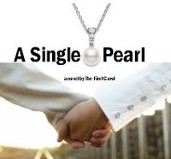
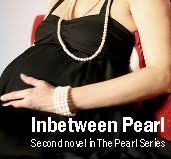


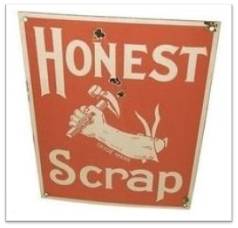



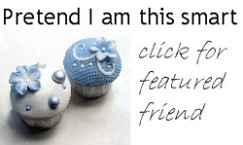



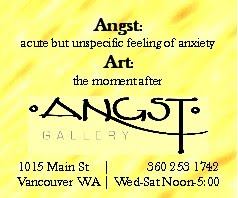
![Validate my RSS feed [Valid RSS]](http://lh3.ggpht.com/_plzXwHt3r2A/Sv5jzV7Po-I/AAAAAAAADH0/ZjXTWFHTNWQ/valid-rss-rogers.png)